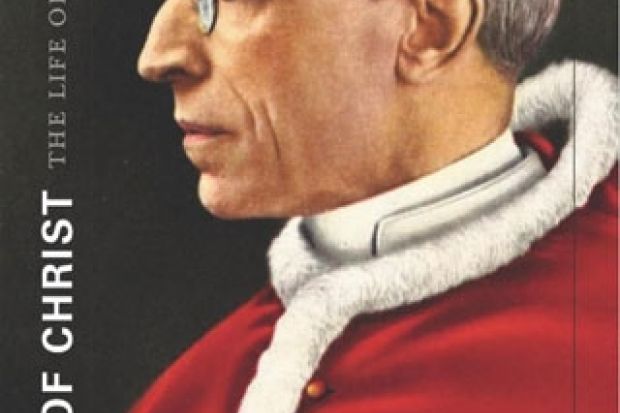Ever since the publication in 1999 of John Cornwell’s Hitler’s Pope: The Secret History of Pius XII, we have been subjected to a barrage of books, articles, journalism and radio and TV documentaries and chat shows arguing about the role that Pius XII played during the Second World War, particularly his response to the Holocaust. It is refreshing, therefore, to read a book that deals with the whole of his life and pontificate, and not merely a much-trampled part of it. Another annoying aspect of the “Hitler’s pope” debate has been that much has been written by amateur historians with axes to grind - and some to stick into the pope’s head. In contrast, we have Robert Ventresca, presumably a Catholic but also a professional historian of the modern papacy who combines meticulous scholarship with an elegant and effective prose style that makes this a very readable and accessible book.
Eugenio Pacelli, who served as papal envoy in Germany 1917-29 and then as secretary of state to Pope Pius XI, was elected the latter’s successor in 1939, taking the name Pius XII. From the examination of Pacelli’s dealings with the Nazis as secretary of state, he emerges as an appeaser, an ecclesiastical counterpart of Neville Chamberlain, and like Chamberlain and most of the British political class, a man who was terrified of Communism. Pacelli often moderated the irascible responses of his boss to the Fascist dictators. But diplomatic suasion had not worked with the Soviets in the 1920s, it did not work with the Nazis during the 1930s, and was useless in face of the Holocaust, although it was partially successful in efforts to get Slovakia’s priest-president Jozef Tiso and Hungary’s Regent Miklós Horthy to stop the deportation of Jews to Auschwitz.
Pius XII has been particularly criticised for his lame response to the Nazi deportation of Jews from his own see city, Rome. Like other authors, when confronted with the conflicting evidence around this episode in October 1943, and that of the Ardeatine Massacre a few months later, and after carefully weighing the testimonies, Ventresca remains on the fence. He adopts more or less the same posture when confronted with the - again, conflicting - evidence about the Vatican’s alleged involvement in the post-war “Ratlines” - the escape routes of Nazi and other Fascist war criminals to South America - concluding that: “While Pius XII cannot be directly implicated in the ratlines operations, he cannot be absolved of complete responsibility for the use, or rather misuse, of Vatican-related institutions and relief structures.” Fair enough.
This book proves beyond all doubt what some of us have felt for years, that the “Hitler’s pope” debate is not a serious historiographical controversy but an essentially political dispute, between Catholics and Jews (and some atheists) and between liberal Catholics such as Cornwell and more conservative ones. Some of the protagonists in this dispute look for “closure” from next year’s opening up of the papers relating to Pius XII’s 19-year pontificate (1939-58) in the Vatican Archives. They believe, according to their lights, either that these papers will finally prove that Pacelli was indifferent to the fate of the Jews or that they will demonstrate the extensiveness of his efforts to save them. I do not believe either of these scenarios. On the other hand, the opening up of the papers is likely to confirm the accuracy and comprehensiveness of the picture that Ventresca presents of Pius XII, which is the most serious and dispassionate biography so far of this controversial pontiff.
Register to continue
Why register?
- Registration is free and only takes a moment
- Once registered, you can read 3 articles a month
- Sign up for our newsletter
Subscribe
Or subscribe for unlimited access to:
- Unlimited access to news, views, insights & reviews
- Digital editions
- Digital access to THE’s university and college rankings analysis
Already registered or a current subscriber? Login
